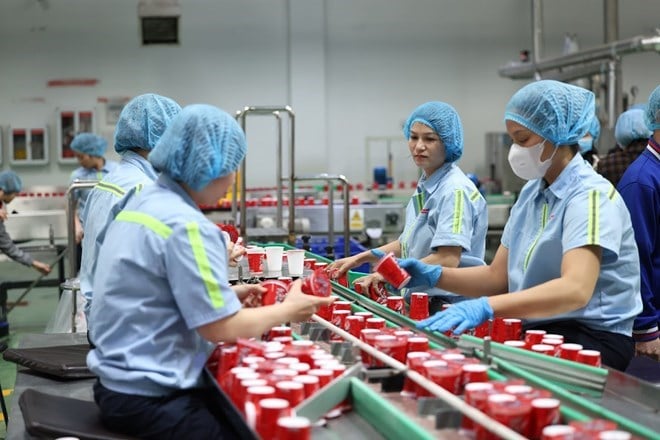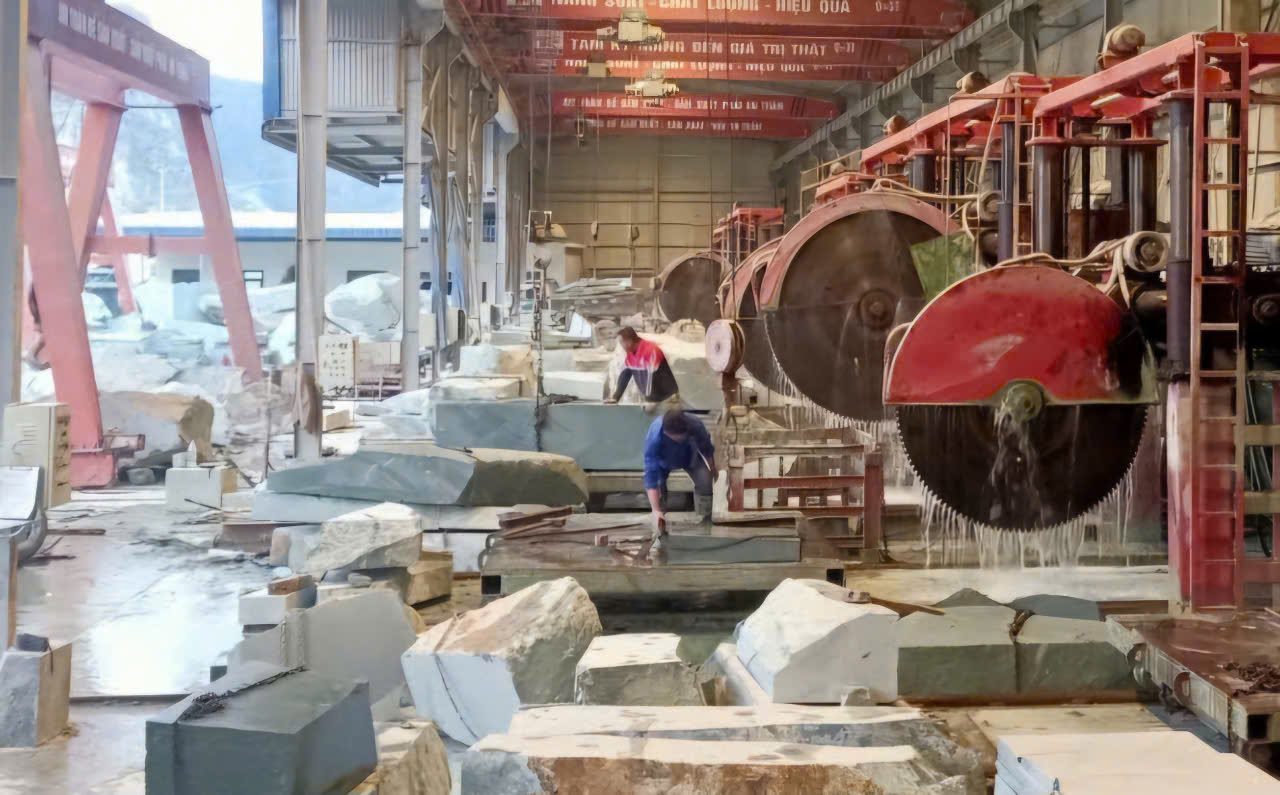Sharing and understanding
Ms. Trieu Thi Tu, from Moc Chau district (Son La), is currently a worker at a company in Pho Noi A Industrial Park (Van Lam, Hung Yen). Ms. Tu was born in 1985, has 2 children aged 15 and 14.
Having worked as a worker for 17 years, Ms. Tu said she "very much understands" the hardships of female maternity workers: "I gave birth to 2 children, the older child has 4 months of maternity leave, the younger child has 6 months of leave. I clearly feel the happiness of having extra maternity leave for female workers. Another day is for the child to be stronger. When I gave birth to a large child, I had been working for 3.5 months because I had to take a half-month off before giving birth due to edema. Going to work when my child is still very young, I feel sorry for him, even though I asked my mother to come down and take care of him for nearly a year. The second child was given an extra 2 months off, seeing that the child was much stronger, the mother went to work when the child had started eating solid foods, so she was more assured. Fortunately, hearing that female workers have been proposed for 7 months of maternity leave, I strongly support and am happy for them if the proposal is approved."

Ms. Mai Thi Ngoc, a female worker at a garment company in Ha Dong district (Hanoi) said that she has just got married in early 2025. Hearing information about the proposal for female workers to have 7 months of maternity leave, Ms. Ngoc said this is a humane policy, sharing and understanding female workers.
"I have just got married and plan to have my first child next year. If this proposal is approved, it will be very good for us. The workers themselves working in the garment industry often cannot work until the day of birth, so they often take a break about half a month before birth. With another month of maternity, we have more time to take care of our children, and my mother can recover more and return to work to ease the hardship, said Ms. Ngoc.
According to Ms. Ngoc, many colleagues in her company, when hearing this information, "delayed" the birth of a second child, waiting for the proposal to take effect to have more time off.
Enterprises support
Mr. Nguyen Minh Phu, Director of Phu Anh Trading Company Limited (Kim Ma Ward, Ba Dinh District, Hanoi) said that his company has more than 200 employees, located in 3 offices in Hanoi, Hai Phong and Ho Chi Minh City. Of which, 60% of the staff are female workers and the majority are of reproductive age.
"In fact, over the years, many employees at my company have asked for an additional month of unpaid leave to stay home and take care of their children when their 6-month maternity leave ended. We do not make things difficult but always try to create conditions for you, said Mr. Phu.
According to Mr. Phu, in any job position, when a female employee asks for extra maternity leave, he meets with the professional department where the employee works to discuss and arrange personnel to handle and take on additional work. Most of the staff support and are willing to take on the job so that their colleagues have more maternity leave.
Sharing the same view with Mr. Phu, Ms. Nguyen Thi Mai - Head of Tam Ky Stone Exploitation Cooperative (Ha Trung District, Thanh Hoa) said that her unit has 13 female employees out of a total of 32 workers.

"Since the 4-month maternity leave policy was increased to 6 months in May 2013, the cooperative has proactively allowed employees to take an additional month off, receiving full salary. Workers can choose to take a leave before or after giving birth. We understand that the nature of work at the factory is quite difficult with noise and dust, so this special mechanism is a way for businesses to share with workers, helping them feel more shared, more trustworthy, and attached to work, Ms. Mai shared.
However, Ms. Mai added that with positions that require high expertise, it is not easy to find the right person in a short time. Because her cooperative has many partners from China, the position of maternity year's interpreter makes it difficult for her to recruit seasonal workers and has to bear additional recruitment costs.












